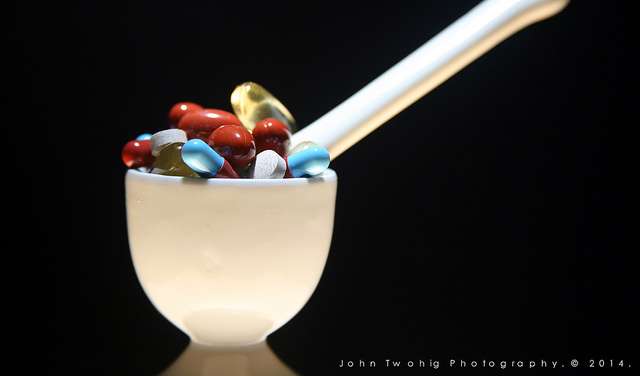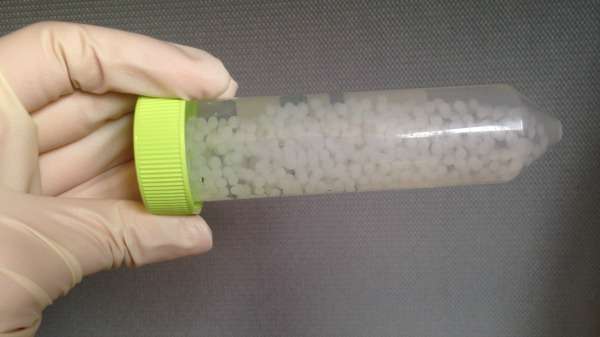Bile acid microcapsules shows promise in drug delivery

Bile acid microcapsules have the potential to effectively deliver diabetic drugs by remaining stable and controlling their release once ingested.
Researchers at Curtin University used the naturally-produced bile acid—deoxycholic acid (DCA)—to design a microcapsule to contain the drug Probucol.
PhD student Rebecca Negrulj says Probucol (also known as Lorelco) has shown potential in diabetes treatment.
It is a lipophilic drug (dissolving in fat-like substances or non-polar solvents) and has been shown to possess potent antioxidant and anti-inflammatory properties.
However, it has very low absorption and variable effects in individuals so it is often administered in high doses, often causing undesirable side-effects.
"Interestingly, its applications in diabetes come about from its strong protective effects on islet cells of the pancreas from reactive oxygen species [ROS] and also alleviating oxidative stress," Ms Negrulj says.
"Therefore Probucol's high lipophilicity and strong radical scavenging effects allow cellular penetration and reductions in ROS of pancreatic islets."
Ms Negrulj says although Probucol is commonly prescribed in Asia, it was removed from the Australian market due to side-effects associated with toxicity.
"In order to overcome the limitations, we wanted to create a better formulation that will work as a platform, ensuring controlled and targeted delivery of drug after oral administration," Ms Negrulj says.

Ideally, a microcapsule needs to remain stable until it reaches the lower intestine (the ileum) where it is absorbed in an environment with a pH around 7 and a temperature of 37 degrees Celsius.
"In this study, the bile acid, deoxycholic acid showed an ability to be incorporated with Probucol and thus potentially deliver the drug into the ileum, for best absorption and effect," Ms Negrulj says.
"With improved absorption, less side effects are expected."
Diabetes mellitus is a chronic disease which is affecting millions of Australians and is increasing at an alarming rate.
Ms Negrulj says the results show good promise and better control indicating that Probucol may have a place in diabetes treatment.
She says future work will examine the impact of other bile acids on Probucol release and will also be conducted in animal trials, of an animal model of diabetes, in order to test its efficacy and safety.
"This drug delivery system is expected to optimise clinical outcomes by reducing toxicity, aiding in absorption and enhancing diabetes control in the wider diabetic population," she says.


















